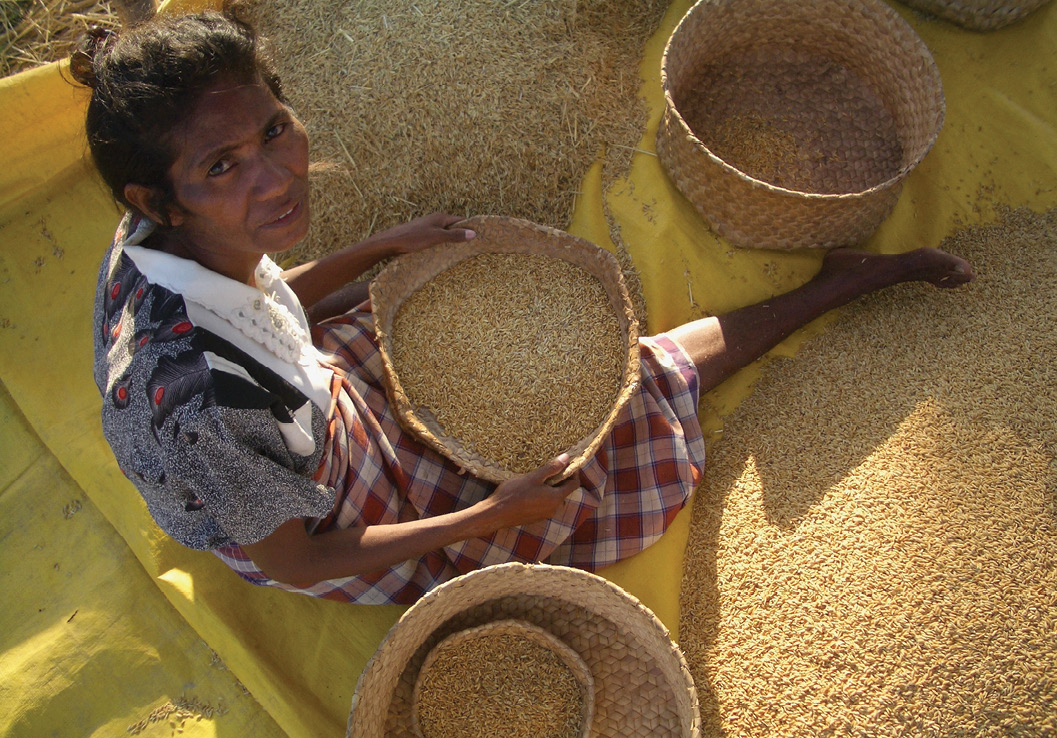Executive summary
Emergency responses to the COVID-19 pandemic have had dramatic impacts in the Indo-Pacific region as state and non-state actors tackle the threat of a public health and economic crisis. The COVID-19 shock has reverberated through food systems since its onset in early 2020, exposing and amplifying existing vulnerabilities. Smallholder farmers and fishers have had to react deftly and creatively as the situation unfolds, responding within the constraints of their local circumstances. Women, girls and other vulnerable groups have been hardest hit.
This report examines the existing food system vulnerabilities being exposed or amplified by the COVID-19 shock, and looks at how this information can be used to inform future research and development to support food systems resilience in the Indo-Pacific. The COVID-19 crisis is examined through the lens of food and nutrition security, primarily from the perspective of smallholder farmers and fishers.
Five assessments were conducted, focusing on the first six months of the pandemic (January–July 2020):
- Indonesia
- seven Pacific island countries
- Papua New Guinea
- the Philippines
- Timor-Leste.
Each assessment applied the same analytical framework, while recognising the very different agrifood systems. The assessments have been analysed for common themes that resonate across the broader Indo-Pacific region. Special attention is paid to identifying opportunities for action through research and development investments that might strengthen the resilience of food systems to future shocks, for each of the five assessments and the Indo-Pacific region more generally.
A suite of common pre-existing vulnerabilities currently undermining food security was identified across the five assessments. Most of these have strong applicability for the Indo-Pacific region. They include:
- dependence on food imports
- exposure to climate change and extreme weather events
- patchy biosecurity, animal and plant health services
- fragmented value chains and food system governance.
Collectively, the assessments revealed significant loss of employment and incomes, disrupted value chains due to both local and international restrictions on logistics, and resultant increases in food prices and growing food and employment insecurity. More generally, food producers are concerned about the limited availability and/or access to agricultural supplies, including for upcoming growing seasons. These input constraints are likely to result in further reductions in food production, extending food insecurity in the region. Declining food demand and access, and increased gender-based discrimination, were also identified as concerning impacts in most but not all geographies studied.
Some features of Indo-Pacific food systems contribute positively to resilience and recovery. The price of rice has been largely stable across the Indo-Pacific region, as a result of market policy reforms instituted after the 2007–08 global food crisis. However, the potential remains for restrictions by rice-exporting countries to trigger international price increases. For local food systems, new ways of marketing through self-organising food distribution systems and the emergence of e-commerce systems were exemplars of resilience and nimbleness in all but one of the regions assessed. The reinforcement of agriculture, fisheries and food production as essential social protection activities was a pivotal measure in Indonesia, the Pacific island countries and the Philippines, and highlights the need for more formal policies and other incentives. After COVID-19, finding an optimal balance between local and foreign production will be paramount.
The report concludes with suggested opportunities for action across three timescales (up to 1, 5 and 10 years) for research and development investments to enhance the resilience of food systems for each of the five geographies and at the scale of the Indo-Pacific region. Shocks such as the COVID-19 pandemic may offer windows of opportunity for food system transformations, which should be sought and proactively grasped by state and non-state actors alike.
